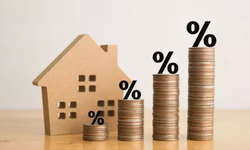Although herbal teas are not a substitute for professional medical treatment for depression, some herbal teas may have calming and mood-enhancing properties that can potentially complement a holistic approach to managing depressive symptoms. If you are experiencing depression, it is very important to consult a healthcare professional to discuss appropriate treatment options. Here are a few herbal teas sometimes associated with relaxation and mood improvement:
*Chamomile Tea: Chamomile tea is known for its calming and soothing properties. It may help reduce anxiety and sleep better, which may be beneficial for individuals dealing with depression-related symptoms.
*Lavender Tea: Lavender is often used in aromatherapy to reduce stress and anxiety. Lavender tea may have similar effects when consumed. It can relieve depressive feelings by helping relax the mind and body.
*St. John's Wort Tea: St. John's wort is a medicinal herb traditionally used to manage mild to moderate depression. However, it can interact with medications and has potential side effects, so it should only be used under the guidance of a healthcare professional.
*Lemon Balm Tea: Lemon balm is known for its calming properties and can help reduce anxiety and improve mood. It can be a relaxing and soothing tea choice.
*Peppermint Tea: Although not a direct treatment for depression, peppermint tea may have invigorating and uplifting qualities. It can help increase focus and provide a mental boost.
*Ginger Tea: Ginger has anti-inflammatory properties and can help with digestive problems often associated with stress and anxiety. It can have a warming and soothing effect.
*Passionflower Tea: Passionflower is believed to have anxiety-reducing effects. Some studies suggest it may help improve sleep quality, which may be beneficial for people with depression.
*Valerian Root Tea: Valerian root is known for its sedative properties and may help with sleep disorders associated with depression. It may be especially beneficial for individuals suffering from insomnia.
It is important to remember that the effectiveness of herbal teas in managing depression may vary from person to person and should not replace professional mental health treatment.












